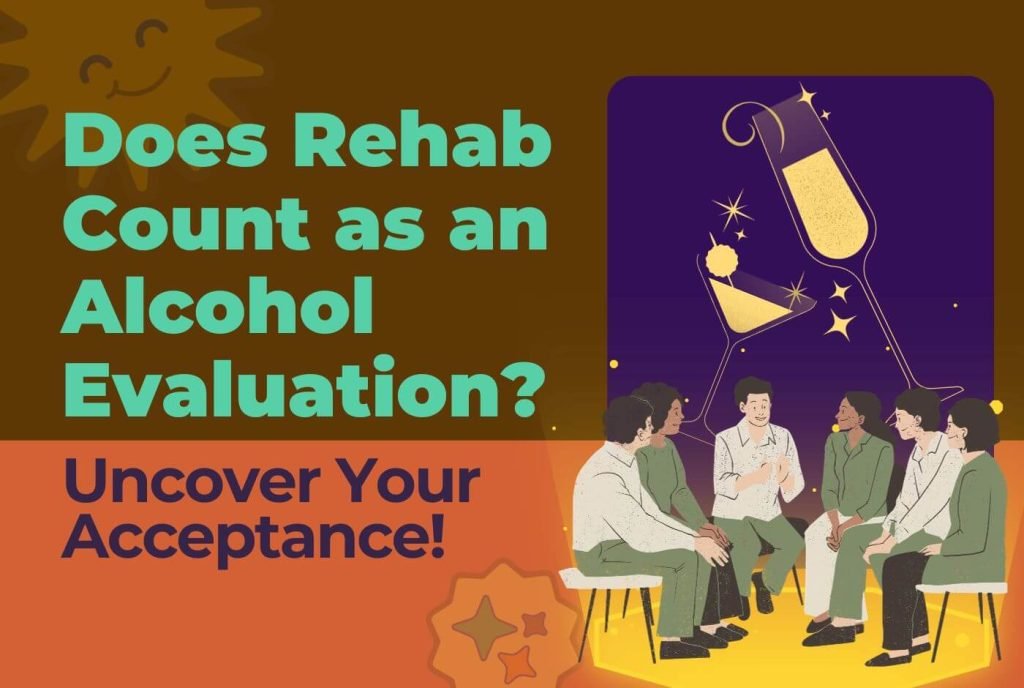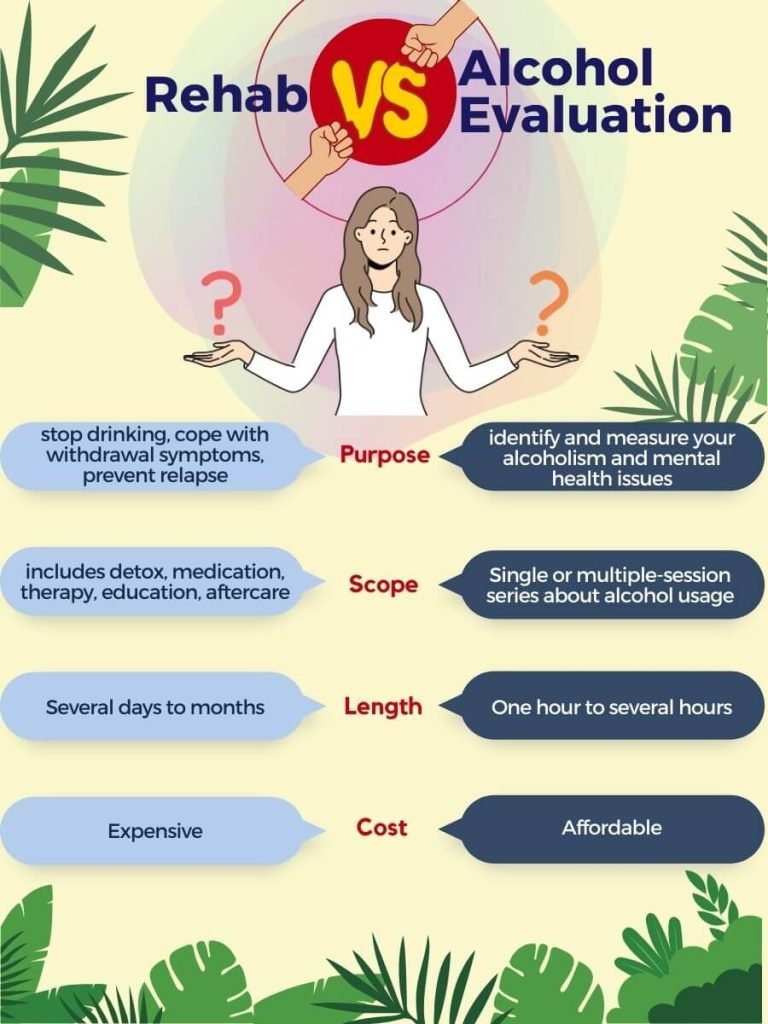Yes, if your rehab has screening, alcohol assessment, treatment planning, and aftercare processes, this can be counted as an alcohol evaluation. Sometimes, you can have an order for alcoholic evaluation from a court or an employer.

And if the rehab has all the features an evaluation needs, you’re good to go. According to NIAAA, about 29.5 million people above 12 years had an Alcohol Use Disorder in 2021.
What is A Drug and Alcohol Evaluation?
Alcohol evaluation is a process of screening and assessing your alcohol usage and its impact on your health. This also tests your behavior and brain functioning. A licensed professional like a counselor or psychologist tests this.
This evaluation is needed to determine if you have alcohol usage problems and what kind of treatment you’ll need.
What is Covered by Alcohol Evaluation?
If you have an alcohol use disorder, you may need to undergo an alcoholic evaluation. There are four main components in this evaluation.
Here are the things covered by alcohol evaluation:
Screening
This is the first step of evaluation. Licensed professionals will test you with standard tools like AUDIT (Alcohol Use Disorder Identification Test), CAGE (Cut down, Annoyed, Guilty, Eye-opener), or MAST (Michigan Alcohol Screening Test). These tests will assess your risk level and AUD severity.
Assessment
This is the second step and more in-depth evaluation than screening. Experts will test you with the DSM-5 (Diagnostic and Statistical Manual of Mental Disorders) to see if you need AUD and co-occurring mental health disorders. They will ask about your family and social relationships, personal goals, and hobbies and review your medical history.
Treatment Planning
After the screening and assessment, the professionals will design a treatment plan specially for you. This will include education, counseling, medication, and detox. This plan will suit your needs, goals, objectives, and health conditions.
Aftercare
This is the care you get after the main course treatment plan. It may include some referrals to other cares to maintain your sobriety. This supports preventing your relapse and your well-being after drug and alcohol evaluation.
What are the Differences Between Rehab and an Alcohol Evaluation
Rehab and Evaluation eventually lead to solving your alcoholism problem. Both try to prevent your relapse, creating mental peace. But there are several differences, too.
Here are the differences between rehab and alcoholic evaluation:

How is Rehab Different from an Evaluation?
Rehab and Evaluation have differences, as seen in the previous table. They differ in their characteristics, specific objectives, methods, alcohol assessments, diagnostics, and outcomes.
Here are the things that make rehab different from an evaluation:
| Rehab | Evaluation | |
| Goals & Objectives | Achieve sobriety & recover from alcohol addiction | Help you understand your alcoholism and its consequences |
| Treatment Methods | MAT, MI, CM, 12-step, Yoga, Medication | AUDIT, CAGE, SCID-5, MMPI-2, Blood & Urine Tests |
| Ongoing Assessment | Monitor your progress & adjust your treatment accordingly | One-time test providing feedback on your AUD |
| Diagnostic Details | AUD based DSM-5 | Based on DSM-5 & ICD-10 |
| Outcomes | Reduced or eliminated alcohol use & increased quality of life | Clear & concise reports, Reliable & valid results |
What is the Actual Process of Alcohol Evaluation
Alcohol is involved in about 22% of deaths. As you go through an alcohol evaluation, you’ll have some questions: what, why & how does this work.
Here are the typical steps in an alcoholic evaluation:
Clinical Interview
Here starts the evaluation. In this stage, a medical professional will ask you about your medical history, family and social history, and many more relevant things. They will use this information to evaluate your condition.
Physical Examination
This is an optional part of the evaluation. Medical professionals will make you go through physical tests if they feel it is needed for you. It’ll include blood pressure, heart rate, temperature, and weight. They may also diagonize liver, pancreatitis, gastritis, or other alcohol-related health problems.
Diagnostic Results
This is the final part of the evaluation. The medical officers will provide you with a written report summarizing the findings. This report will consist of a diagnosis of AUD and other disorders.
Next Step After The Evaluation
Now you’ve got your alcohol report, and you know what your problems are. You can either go with the words or ignore them for something better. Sometimes, you may not satisfied with your evaluation report, and you can skip it by consulting another counselor or therapist.
People Also Ask
Where to get an alcohol evaluation?
You can get an alcohol evaluation from any certified counselor (CADC), abuse professional (SAP), court-appointed evaluator, hospital, or rehab facility.
How do I get an alcohol evaluation?
You can get an alcohol evaluation by asking your primary care physician for a referral, searching online for local agencies, or calling a toll-free hotline.
Will insurance cover the cost of alcohol evaluations?
Yes, some insurance covers the alcohol evaluation costs. But don’t worry if it doesn’t cover them. Alcohol evaluation isn’t as expensive as the rehab itself.
Alcohol evaluation is a valuable checkup that determines to what degree you will need the treatment. But be careful, as this isn’t a substitute for treatment. If the evaluation states you have problems, you must take serious action ASAP.
You deserve a better life by quitting alcohol. Know if your health insurance covers your inpatient rehab.
- What to Pack for 30-Day Rehab? FREE Checklist - May 30, 2024
- Types of Outpatient Rehab: Difference One Should Know - March 28, 2024
- Truth Behind FMLA: Hidden Hurdles of Alcohol Rehab Leave - March 28, 2024